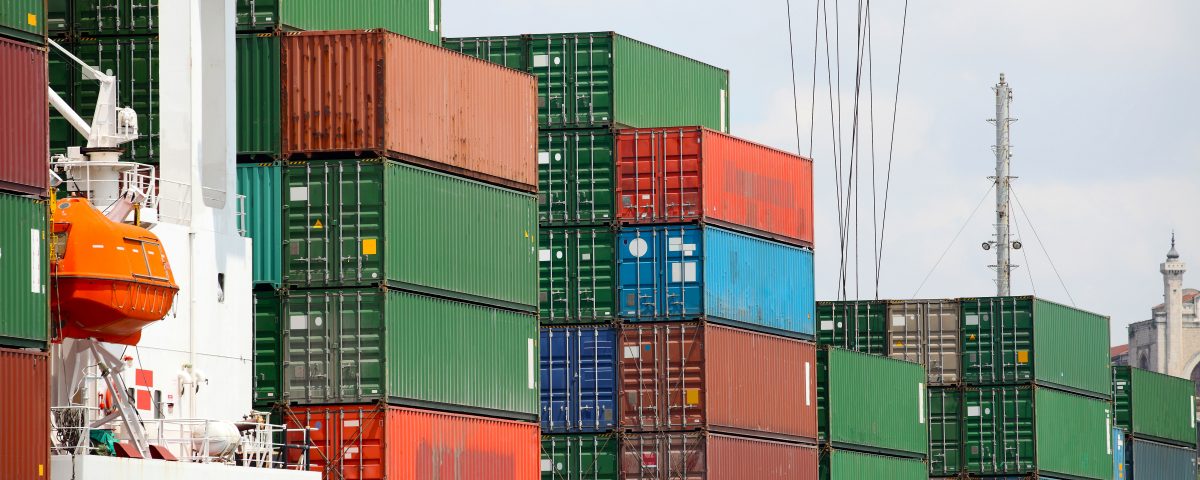In 2021, Nigeria’s value of total export increased by 51 percent when compared with the previous year. This came with a simultaneous rise in the export value of agricultural goods, solid minerals, and energy goods. Despite these increases, the country had a negative balance of trade for the fourth quarter of 2021.
A summary of Nigeria’s export trade for the last quarter of 2021 revealed that crude oil accounts for 74 percent of total exports and remains the biggest export product while the country loses an estimated $10 billion to export opportunities of groundnut, cocoa, cotton, and palm oil every year.
Nigeria has a wide range of export products aside from crude oil. This includes sesame seeds, raw and fermented cocoa beans, shelled cashew nuts, ginger, natural cocoa butter, frozen shrimps and prawns, and agro-food items. But, the trade potentials of these products are hindered by multiple barriers which limit export opportunities and foreign exchange earnings.
Barriers Facing Export Trade in Nigeria
Poor road network especially around the Lagos port areas is a huge barrier for transporting perishable agricultural products to port areas for export. The lack of varied options for transport infrastructure reflects in the NBS data on trade by mode of transport as 99.43 percent of total exported goods were transported through maritime mode. The access roads to the ports are however poor.
Despite sharing borders with Niger, Chad, Cameroon, and Benin, there is relatively low trade by road happening between Nigeria and these countries after the land borders closure directive issued by President Buhari in 2019.
A spillover effect of the land border closure is the restriction of market access for local producers in Nigeria to export goods to other African countries. The federal government justified the closure of the land borders on the need to stop smuggling activities and illicit export of locally subsidised petrol to neighbouring countries. However, the border closure had ripple effects on agricultural products export.
Nigerian ports, which account for a large portion of Nigerian exports, are still plagued with extensive waiting time at berths for vessels, then rejection of export products over failure to meet licensing regulations or trade quota. Shipping companies have also incessantly laid complaints on the increase in cargo clearance charges and exorbitant demurrage fees charged by the Nigerian Ports Authority (NPA) and terminal operators. All of these barriers are circled together by inaccessible port roads which reduces the short lifespan of most perishable goods.
Insecurity has also become a major factor in the declining export trade. Abductions, targeted attacks, and killings met on farming villages in Southern and Northern Nigeria have reduced the output of agricultural produce and considerably affected the export of agricultural and non-oil products. In 2021, experts blamed insecurity for Nigeria’s balance of trade deficit as imports surpassed exports by 503 billion naira in early 2021.
Fluctuating exchange rate has adverse effects on trading and economic activities including international trade. Naira has fallen drastically in recent years and the CBN’s over-regulation and price-fixing of the official market rate hurt international traders who rely on the black market for forex since the apex bank has drastically reduced access to forex through commercial banks.
A country’s trade policy has a great impact on it’s international trade. Nigeria has contrasting laws and policies on trade, for instance, the 1989 Export Prohibition Act states that yam, cassava and all their derivatives cannot be exported, while the Nigeria Export Promotion Council (NEPC) is actively promoting non-oil exports including yam.
The NBS data does not capture yam, cassava and all their derivatives in its reports showing the government’s shortcoming in being unable to harmonise trade policies or formulate ones that mirrors current economic and trade realities.
How Government Can Address These Barriers
In January 2022, the spokesman for the Shippers Association of Lagos revealed that 82 percent of Nigeria’s agro-allied products are either seized or rejected by EU countries because they are illegally exported without certification from government agencies. To forestall further seizure and build a strong export policy, the federal government should work with the NEPC, Nigeria Customs Service, and lawmakers to amend the Customs and Excise Management Act (CEMA) and other trade laws and policies to meet current realities and World Trade Agreements.
While trade policies are being harmonised or redrafted, the CBN needs to throttle down on over-regulation of FX and price-fixing of the official market rate, this will allow genuine demand and supply to determine FX price and trade.
Effectively tackling insecurity across the country will help in keeping farmers and farming villages safe to work. This will translate to an increase in agricultural production and exports.
Nigeria already has the advantage of having some of the busiest ports in Africa. With the AfCFTA in place and the country’s overall potential for trade, implementing smart port technologies will help to address multiple challenges at the port and boost its operations. Operating a smart port will be beneficial to international trade, especially exports.
After the federal government reopened land borders, it revealed that smuggling has been limited but what it failed to acknowledge is that the border closure reduced Nigeria’s export to other African countries and negated multiple free trade agreements. With the AfCFTA in full operation, the government can revamp market access by promoting exports via land borders.
Nigeria is in a unique position with the possession of some of the best agricultural export products, but it also requires government policies that keep farmers flush with: grants and credit facilities, accessibility to inputs and equipment, and safety. If these are put in place, agricultural productivity will increase, the country’s exports will experience a boost, and foreign exchange earnings will grow.


Leave a Comment